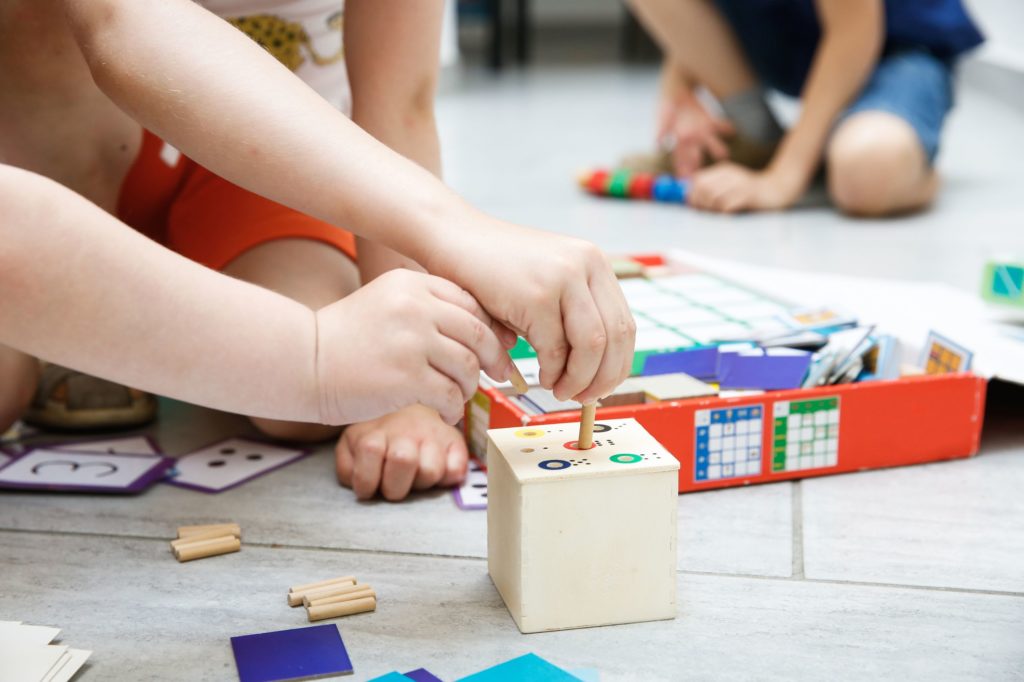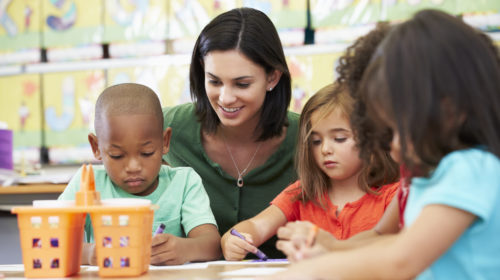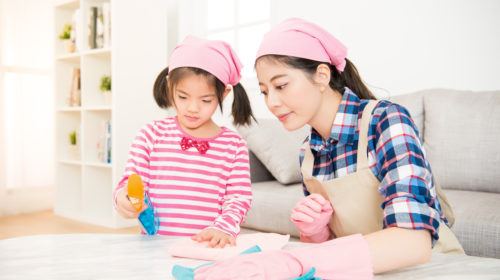Does the Montessori Method Have An Edge Over Other Types of School Techniques?
New research suggests that children who attend Montessori schools may have an edge over other children in terms of both academic and social development. However, this early education researcher stated that the , “…study was far too small to be conclusive.”
Researchers only tested 30 5-year-olds and 29 12-year-olds attending a public inner-city Montessori school in Milwaukee, Wis. They also tested a similar number of 5- and 12-year-olds who attended non-Montessori Milwaukee schools.
The results were as follows:
- “The 5-year-old Montessori students were found to have better reading and math skills than their peers who attended traditional schools and they scored higher on tests measuring social development, researchers reported.”
- “The 12-year-old Montessori and non-Montessori students had similar reading and math scores, but the Montessori children tended to score higher on tests measuring social and behavioral development…”
Concerns over the Montessori Approach:
Concerns about the program tend to focus on the lack of testing and grading of school-aged children.
“Parents worry that their children won’t be able to compete if they aren’t exposed early to competitiveness in school.”
What does Work:
It is clear, that young children learn best when they are taught in smaller classrooms with student-to-teacher ratios of no more than one to ten. And paying enough to recruit high-quality teachers with college degrees in early education also has said to make a huge difference.
10 Major Differences Between Montessori Schools & Traditional Schools:
1. Prepared Environment– Montessori is prepared in advanced based on observations of the students needs. They include student-centered lessons and activities. Traditional classrooms are based on teacher-centered lessons or activities.
2. Active vs Passive– montessoris are hands on and with active lessons. Students discover information for themselves. Traditional school lessons are often orated to students who listen passively, memorize, and take tests.
3. Give Them Time– In the Montessori classroom, children work on lessons as long as need be, and interruptions are avoided whenever possible. Time limitations are mandated by arbitrary schedules in traditional classrooms.
4. The Teacher’s Role– Montessori teachers act as guides and consultants to students on a one-on-one basis. They assist each child along his or her own learning path. Traditionally, teachers pace and order of lessons are predetermined. The teacher must deliver the same lesson, at the same pace, in the same order, for all of the students.
5. Age Levels and Grade Levels– Montessori schools, “grade-levels” are flexible and determined by the child’s developmental range, i.e., 0-3, 3-6, 6-9, 9-12, 12-15, and 15-18 years of age. In traditional schools, grade levels are not flexible and strictly defined by chronological age within a twelve-month period.
6. Adaptable Curricula– Montessori curricula expands in response to the students’ needs. Traditional curricula are predetermined without regard to students’ needs.
7. Pace Yourself- The individual child’s work pace is honored and encouraged in the montessori classroom. Traditional classrooms expect all children to work at the same pace.
8. Self-made Self-esteem– Montessori’s understand that the child’s self-esteem comes from an internal sense of pride in his or her own accomplishments. In traditional classrooms, self-esteem is thought to come from external judgement and validation.
9. For the Love of Learning– Montessori curricula are intended to appeal to the child’s innate hunger for knowledge. Children learn to love learning. Traditional curricula focus on standardized test performance and grades. Children learn because it is mandatory.
10. Change is Good– The Montessori Method was created by Maria Montessori and is based on a lifetime of study and observation with regard to the way children really learn. Traditional education is based on…well…tradition.
Montessori children are unusually adaptable when compared to children attending regular schools or centers. They have learned to work independently and in groups and develop the skills necessary to effectively collaborate with all types of children and people. Since they’ve been encouraged to make decisions from an early age, these children are good problem-solvers who can make appropriate choices and manage their time well as opposed to traditional structured school programmed children, where the teacher is continually “managing” the classroom or telling the child what to work on or correcting the child’s work.




